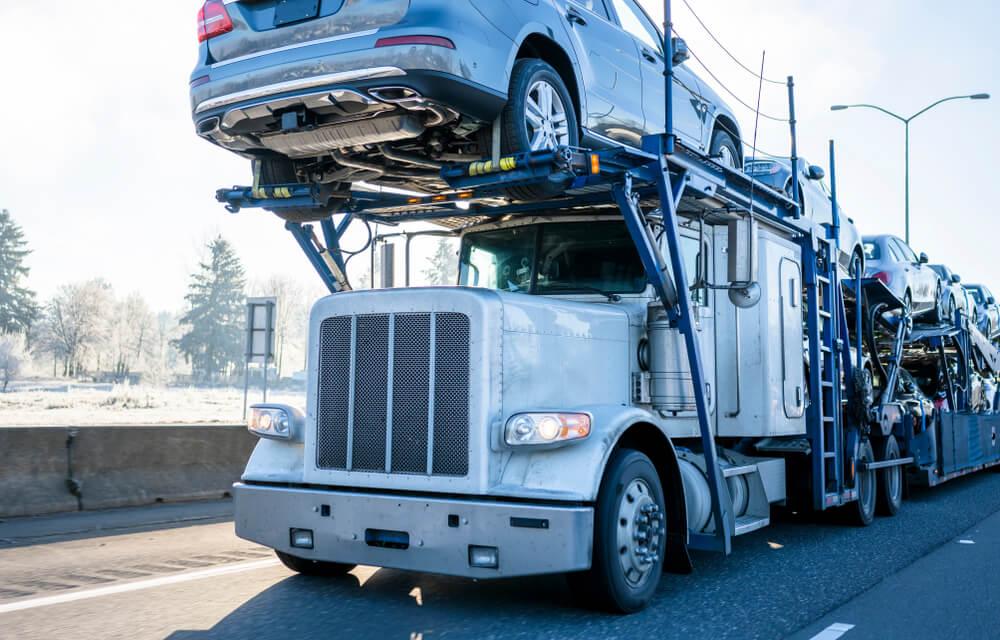
An auto shipping broker serves as a specialized intermediary between customers and carriers, facilitating the shipping of various vehicles, including cars, trucks, boats, RVs, and motorcycles. They handle logistics, negotiate rates, and ensure a smooth transportation process.
Auto shipping brokers are intermediaries between customers who want to ship their vehicles and the transport companies, also known as carriers, that provide the actual transportation service. They are crucial in facilitating smooth transactions by connecting clients with reputable carriers. Brokers have extensive networks of trustworthy auto transporters, which they leverage to find the best match for each customer's needs.
The Distinction between Auto Shipping Brokers and Carriers
Auto shipping brokers and carriers play distinct roles in the transportation of vehicles. The former are intermediaries who connect customers with auto transport services, while the latter are companies that move cars. Understanding these differences can help you make informed decisions when transporting your vehicle.

Brokers gather information about a customer's shipping needs and then find suitable carriers to fulfill those requirements. They do not own trucks or employ drivers; they leverage their extensive networks to find reliable carriers for each job. This takes away much of the stress from customers as they don't have to search for trustworthy service providers personally.
Alternatively, auto shipping carriers own fleets of trucks and directly carry out transport jobs. When you book services with them, your car will be loaded onto one of their vehicles and delivered according to an agreed schedule. While dealing directly with a carrier may sometimes offer more control over specific details like pickup times or routes, it also requires more effort on the customer's part than using a broker’s service.
Key Responsibilities of Auto Shipping Brokers
Auto shipping brokers play a crucial role in the vehicle transportation industry. Their primary responsibility is to act as intermediaries between customers and auto carriers. They leverage their extensive networks of reliable carriers to ensure that vehicles are transported safely and efficiently. The process involves gathering client information about their specific needs, such as pickup and delivery locations, preferred transport dates, type of vehicle being shipped, and any special requirements.
Another critical duty of auto shipping brokers is price negotiation. These professionals have deep knowledge about market rates for various routes at different times of the year. They negotiate on behalf of clients with multiple carriers to secure competitive pricing without compromising service quality or safety standards. Additionally, they provide accurate quotes to customers that reflect all costs involved in the shipment process, including insurance coverage.
Brokers also manage logistics coordination throughout the entire process until delivery confirmation is received from the client. This includes tracking shipments en route and regularly updating customers regarding their vehicle's location status and estimated arrival time. Importantly, suppose any issues arise during transit, such as delays or damages. In that case, it's up to these brokers to resolve disputes between parties involved while ensuring customer satisfaction remains high throughout this potentially stressful experience.

Frequently Asked Questions
An auto shipping broker is responsible for coordinating the transportation of vehicles from one location to another. This can include finding reliable carriers, negotiating rates, scheduling pick-ups and drop-offs, and resolving any issues that may arise during shipping.
The main distinction is that a car carrier physically moves the vehicles, while an auto shipping broker acts as a middleman between the customer and the carrier. The broker's job is to find a reliable carrier and handle all the logistics and communication, while the carrier is responsible for the actual transportation.
Key responsibilities of an auto shipping broker include finding and vetting reliable car carriers, negotiating shipping rates, scheduling vehicle pick-ups and drop-offs, handling paperwork and insurance details, tracking the shipment, and resolving any issues or delays that may occur during the shipping process.
No, auto-shipping brokers are not legally required. However, they can simplify the process by handling all the logistics and ensuring the reliability of the car carriers. Their knowledge and experience in the industry often make the shipping process smoother and less stressful for the customer.
Auto shipping brokers are responsible for ensuring the carriers they work with have the necessary insurance to cover any damage or loss during transit. However, they do not provide the insurance themselves. Customers should always request proof of a carrier's insurance before agreeing to work with them.






 Share on Facebook
Share on Facebook Share on LinkedIn
Share on LinkedIn Share on Twitter
Share on Twitter




 Google
Google  Instagram
Instagram  Trustpilot
Trustpilot 



